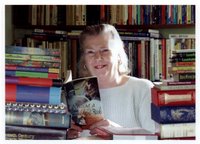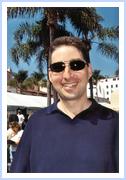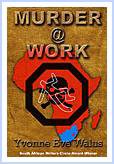A tribute to Pamela Cleaver

This weekend I was very saddened to learn about the sudden death of
Pamela Cleaver, an author I got to know online via the
RNA and
Historical Novels Society. Pam was a loyal supporter of my various authorial-related projects and a regular visitor to my author blog, and also to this blog. In fact she emailed me with a tip related to content for this blog on 23rd November, the day she died:
In case you haven't seen it, I think you would be interested in this blog www.livejournal.com/user/agentobscura entries of Tues Nov 22 and Sun Nov 20
ATB Pam
Pam first approached me while she was working on her book published last week,
Ideas for Children's Writers, to ask if she could quote me in the book related to some comment I had made about writing historical fiction. I was delighted to oblige. Pam was successful children's author, having sold 50,000 copies of her own children's books and seeing them translated into French, German, Norwegian, Swedish and Finnish as well as writing the bestselling how-to book,
Writing a Children's Book. However, I was at that stage without a book out and although I did have two publishing contracts I still felt very much 'unpublished' and lowly and so in my return email I asked her if she was sure she wanted a quote from
me. Pam was extremely professional, told me not to worry, explained how the whole etiquette of getting quotes worked and that she actually did really want to quote me because I'd actually said something interesting.
I was soothed, a little flattered, and as our correspondence developed I became determined to help Pam in return for the all the help and advice she had freely given me. My opportunity came when she had her first Regency romance,
The Reluctant Governess, published this year. My genre, and although my own first novel had only also very recently been published I knew some things I could pass on as help. And this summer Pam got involved in a bigger project which had struck me as a good idea - one to promote the genre of Regency romance as a whole, and UK authors of Regency romance in particular. (Visit our
website here).
Truly generous in spirit,
Pamela Cleaver embodied the sort of benevolent professionalism to which all marketing savvy authors should aspire. She gave freely, confident that she would make friends and, in the long run, pick up benefits returned back to her in kindness.
Pam, I will miss you. Thank you for everything you taught me about being an author.
 This weekend I was very saddened to learn about the sudden death of Pamela Cleaver, an author I got to know online via the RNA and Historical Novels Society. Pam was a loyal supporter of my various authorial-related projects and a regular visitor to my author blog, and also to this blog. In fact she emailed me with a tip related to content for this blog on 23rd November, the day she died:
In case you haven't seen it, I think you would be interested in this blog www.livejournal.com/user/agentobscura entries of Tues Nov 22 and Sun Nov 20
ATB Pam
Pam first approached me while she was working on her book published last week, Ideas for Children's Writers, to ask if she could quote me in the book related to some comment I had made about writing historical fiction. I was delighted to oblige. Pam was successful children's author, having sold 50,000 copies of her own children's books and seeing them translated into French, German, Norwegian, Swedish and Finnish as well as writing the bestselling how-to book, Writing a Children's Book. However, I was at that stage without a book out and although I did have two publishing contracts I still felt very much 'unpublished' and lowly and so in my return email I asked her if she was sure she wanted a quote from me. Pam was extremely professional, told me not to worry, explained how the whole etiquette of getting quotes worked and that she actually did really want to quote me because I'd actually said something interesting.
I was soothed, a little flattered, and as our correspondence developed I became determined to help Pam in return for the all the help and advice she had freely given me. My opportunity came when she had her first Regency romance, The Reluctant Governess, published this year. My genre, and although my own first novel had only also very recently been published I knew some things I could pass on as help. And this summer Pam got involved in a bigger project which had struck me as a good idea - one to promote the genre of Regency romance as a whole, and UK authors of Regency romance in particular. (Visit our website here).
Truly generous in spirit, Pamela Cleaver embodied the sort of benevolent professionalism to which all marketing savvy authors should aspire. She gave freely, confident that she would make friends and, in the long run, pick up benefits returned back to her in kindness.
Pam, I will miss you. Thank you for everything you taught me about being an author.
This weekend I was very saddened to learn about the sudden death of Pamela Cleaver, an author I got to know online via the RNA and Historical Novels Society. Pam was a loyal supporter of my various authorial-related projects and a regular visitor to my author blog, and also to this blog. In fact she emailed me with a tip related to content for this blog on 23rd November, the day she died:
In case you haven't seen it, I think you would be interested in this blog www.livejournal.com/user/agentobscura entries of Tues Nov 22 and Sun Nov 20
ATB Pam
Pam first approached me while she was working on her book published last week, Ideas for Children's Writers, to ask if she could quote me in the book related to some comment I had made about writing historical fiction. I was delighted to oblige. Pam was successful children's author, having sold 50,000 copies of her own children's books and seeing them translated into French, German, Norwegian, Swedish and Finnish as well as writing the bestselling how-to book, Writing a Children's Book. However, I was at that stage without a book out and although I did have two publishing contracts I still felt very much 'unpublished' and lowly and so in my return email I asked her if she was sure she wanted a quote from me. Pam was extremely professional, told me not to worry, explained how the whole etiquette of getting quotes worked and that she actually did really want to quote me because I'd actually said something interesting.
I was soothed, a little flattered, and as our correspondence developed I became determined to help Pam in return for the all the help and advice she had freely given me. My opportunity came when she had her first Regency romance, The Reluctant Governess, published this year. My genre, and although my own first novel had only also very recently been published I knew some things I could pass on as help. And this summer Pam got involved in a bigger project which had struck me as a good idea - one to promote the genre of Regency romance as a whole, and UK authors of Regency romance in particular. (Visit our website here).
Truly generous in spirit, Pamela Cleaver embodied the sort of benevolent professionalism to which all marketing savvy authors should aspire. She gave freely, confident that she would make friends and, in the long run, pick up benefits returned back to her in kindness.
Pam, I will miss you. Thank you for everything you taught me about being an author.







